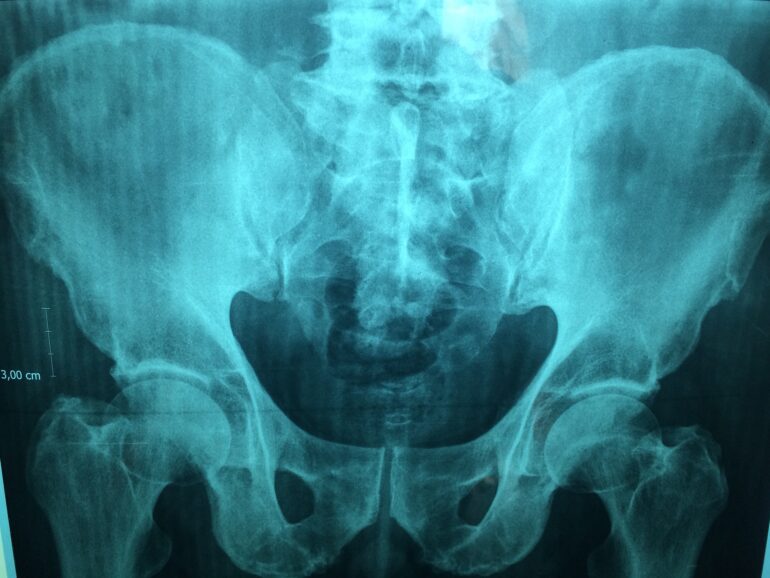TL;DR:
- Moscow radiologists have used neural networks and algorithms to process a large number of X-ray examinations, revolutionizing medical imaging analysis.
- The unified radiological information service in Moscow provides access to over 50 algorithms, facilitating the accurate and efficient interpretation of medical images.
- Computer vision technology enhances disease detection in radiology by identifying potential pathologies and providing comprehensive descriptions and measurements.
- Moscow’s AI services enable the detection of various conditions, including lung cancer, COVID-19, osteoporosis, and heart disease.
- The initiative has expanded beyond Moscow, with other regions in Russia integrating AI technology into their medical services.
- The goal is to provide widespread access to AI-assisted diagnostics across Russia, with continuous improvement in algorithm quality through collaboration and feedback.
- Moscow has been at the forefront of integrating smart algorithms since 2020, leading to the development of national standards for AI in healthcare.
- Moscow is the first city to introduce artificial intelligence into compulsory health insurance, emphasizing its commitment to using cutting-edge technology for citizen benefit.
Main AI News:
In a groundbreaking achievement, Moscow radiologists have harnessed the power of neural networks to revolutionize medical imaging analysis. With the aid of sophisticated algorithms, these experts have been processing an astounding average of 270,000 X-ray examinations each month, totaling a staggering 10 million studies. This remarkable feat highlights Moscow’s relentless pursuit of scientific and practical advancements in healthcare through the integration of artificial intelligence.
Anastasia Rakova, Deputy Mayor of Moscow for Social Development, underlined the city’s systematic approach and unwavering commitment to quality control in the implementation of artificial intelligence. Through the unified radiological information service, medical institutions across the capital now have access to over 50 algorithms spanning 21 modalities, facilitating the accurate and efficient interpretation of medical images.
Computer vision technologies have emerged as a game-changer in diagnostic radiology, enhancing the efficacy of disease detection. These innovative algorithms possess the remarkable ability to accurately identify potential pathologies by highlighting them with color-coded indicators on the images. Furthermore, they enable physicians to make precise diagnoses by providing comprehensive descriptions and clinical measurements. Most importantly, computer vision technology enables the detection of pathologies at an early stage, often imperceptible to the human eye.
The impact of artificial intelligence on disease detection in X-ray images is nothing short of extraordinary. Moscow’s advanced AI services now facilitate the detection of various conditions, including lung cancer, COVID-19, osteoporosis of the spine, aortic aneurysm, coronary heart disease, stroke, pulmonary hypertension, hydrothorax, breast cancer, herniated discs, flat feet. Astonishingly, certain cutting-edge AI systems can detect up to 10 pathologies on a single medical image.
Fluoro-, mammo-, and radiography, along with computed and magnetic resonance imaging, extensively rely on artificial intelligence for efficient processing. In 2022, this initiative expanded beyond Moscow, with other regions across Russia embracing the Hub Telemed platform, operated by the Moscow Department of Health, to integrate AI technology into their medical services.
Yury Vasiliev, Senior Consultant for Radiology at the Moscow City Health Department and CEO of the Center for Diagnostics and Telemedicine, emphasized the indispensable role of artificial intelligence in healthcare. Vasiliev expressed the department’s eagerness to extend the project’s reach to encompass regions throughout Russia, with the aim of providing widespread access to the benefits of AI-assisted diagnostics. Notably, radiologists in the Yamalo-Nenets Autonomous Region and the Clinical Interdistrict Hospital of the Leningrad Region have already embraced seven artificial intelligence services across four research domains.
In the Yamalo-Nenets Autonomous Okrug alone, neural networks have processed over 27,000 medical images, with regional clinics sending anonymized studies to the Center for Diagnostics and Telemedicine’s platform for analysis by artificial intelligence. The results are then returned to the attending physician for final interpretation. Rigorous oversight by specialists, who collaborate closely with developers and gather feedback from doctors, ensures a continuous improvement in the quality of algorithms. This ambitious initiative extends a warm invitation to other regions of Russia, encouraging their participation and contribution to the advancement of AI-assisted diagnostics.
Since 2020, Moscow has been at the forefront of integrating smart algorithms into its medical institutions, spearheading an ongoing experiment to incorporate computer vision technologies. With the support of the Department of Information Technologies, this initiative, led by the Center for Diagnostics and Telemedicine, is an integral part of Moscow’s broader social development complex. Notably, the scientific findings from this experiment have already led to the development and implementation of 11 national standards that govern the use of AI in healthcare, with ten standards already in effect.
As of 2023, cancer screening utilizing neural networks has been officially included in medical services, with a dedicated tariff, making Moscow the first city to introduce artificial intelligence into compulsory health insurance. This momentous step showcases Moscow’s commitment to utilizing cutting-edge technology for the benefit of its citizens, setting a remarkable precedent in the realm of AI integration in healthcare.
Conclusion:
The integration of artificial intelligence in radiology has brought about a significant transformation in Moscow’s healthcare system. The use of neural networks and sophisticated algorithms have revolutionized medical imaging analysis, enabling accurate and efficient interpretation of X-ray examinations. Computer vision technology has enhanced disease detection, enabling early identification of various conditions. This initiative has not only expanded within Moscow but also reached other regions of Russia, fostering collaboration and the sharing of best practices. Moscow’s leadership in integrating AI in healthcare is setting a remarkable precedent and showcasing the potential of cutting-edge technology to improve patient care and outcomes.

